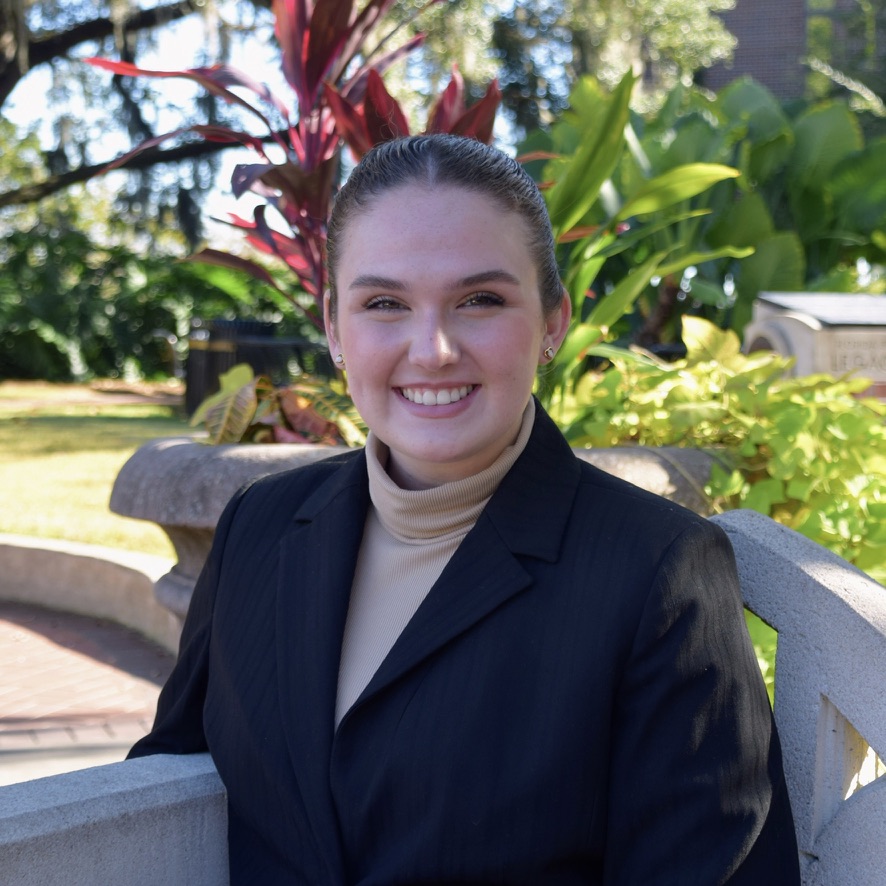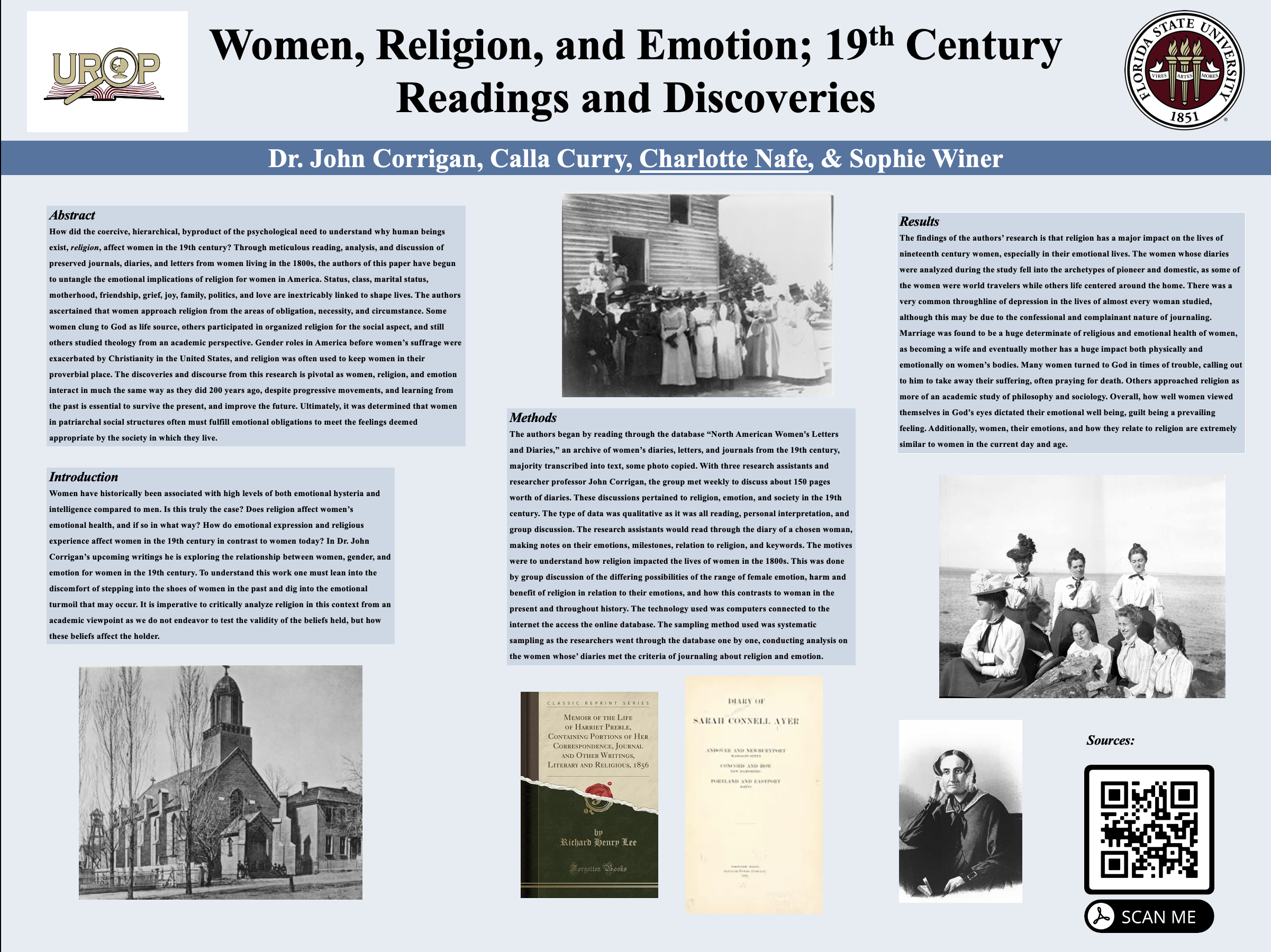Research Symposium
24th annual Undergraduate Research Symposium, April 3, 2024
Charlotte Nafe Poster Session 4: 2:45 pm - 3:45 pm /220

BIO
Charlotte Nafe is a Sophomore at Florida State University, majoring in International Affairs and concentrating in religion. She is the Assistant Director of Involvement of the Internationally Ranked FSU World Affairs Program and currently works in the Office of the Provost at the University, specializing in quality enhancement and administration. Charlotte adores traveling, reading, writing, and spending time in nature. She is incredibly thankful to her friends, family, professors, and mentors for their undying support and guidance. She hopes to continue her study of academic religion in her future career and intends to pursue degrees in higher education.
Women, Religion, and Emotion; 19th Century Readings and Discoveries
Authors: Charlotte Nafe, John CorriganStudent Major: International Affairs
Mentor: John Corrigan
Mentor's Department: Religion Mentor's College: Arts and Sciences Co-Presenters:
Abstract
How did the coercive, hierarchical, byproduct of the psychological need to understand why human beings exist, religion, affect women in the 19th century? Through meticulous reading, analysis, and discussion of preserved journals, diaries, and letters from women living in the 1800s, the authors of this paper have begun to untangle the emotional implications of religion for women in America. Status, class, marital status, motherhood, friendship, grief, joy, family, politics, and love are inextricably linked to shape lives. The authors ascertained that women approach religion from the areas of obligation, necessity, and circumstance. Some women clung to God as life source, others participated in organized religion for the social aspect, and still others studied theology from an academic perspective. Gender roles in America before women’s suffrage were exacerbated by Christianity in the United States, and religion was often used to keep women in their proverbial place. The discoveries and discourse from this research is pivotal as women, religion, and emotion interact in much the same way as they did 200 years ago, despite progressive movements, and learning from the past is essential to survive the present, and improve the future. Ultimately, it was determined that women in patriarchal social structures often must fulfill emotional obligations to meet the feelings deemed appropriate by the society in which they live.
Keywords: Religion, Emotion, Women, History

